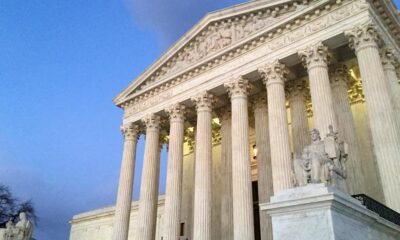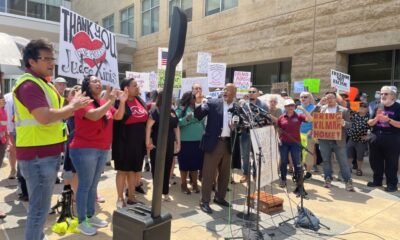Ann Scott Timmer
Justice Reveals Reasons for Staying in Retention Case Amid Controversy

Chief Justice Ann Scott Timmer recently addressed her decision to remain involved in a pivotal Supreme Court case that could influence the retention elections of justices in Arizona. Speaking with Capitol Media Services, she highlighted that her potential personal stake in the outcome is “rather attenuated and speculative.”
Timmer’s stance is not unique; she is joined by her colleagues in maintaining their positions regarding the legality of a measure put forth by Republican lawmakers. Only justices Clint Bolick and Kathryn King have opted to recuse themselves. Their reasons are more clear-cut, as the measure, if passed, would provide them immediate protection from voter removal, effectively nullifying the results of any future retention votes.
Proposition 137 seeks to alter the established system of judicial selection and retention that voters approved in 1974. While it maintains the governor’s role in appointing judges from designated lists, the proposition removes regular electoral assessments of trial and appellate judges, who would no longer face the electorate every four to six years. Supporters argue that fewer frequent votes would prevent judges from being ousted due to unpopular rulings.
Critics, however, contend that introducing such a change compromises judicial accountability. Notably, the measure also paves the way for lawmakers to appoint members to the Commission on Judicial Performance Review. This new provision could permit the ruling party to influence judicial conduct investigations, raising concerns about impartiality in reviewing judicial performance.
The Supreme Court is deliberating whether to place this measure on the ballot. The decision this week could shape the future of judicial tenure in Arizona, as the current justices face a nuanced conflict between their positions on the bench and potential electoral consequences. Timmer noted that there are no clear guidelines for when a justice should step back, referencing her past experience with a case involving changes to judges’ pension systems.
In that instance, she acknowledged a more direct conflict due to personal financial implications. In contrast, the current case lacks the same clarity regarding immediate impacts on her role. “I think that is too attenuated in my mind to make for a conflict of interest,” she concluded, as the court prepares to make a consequential ruling on judicial elections.


















